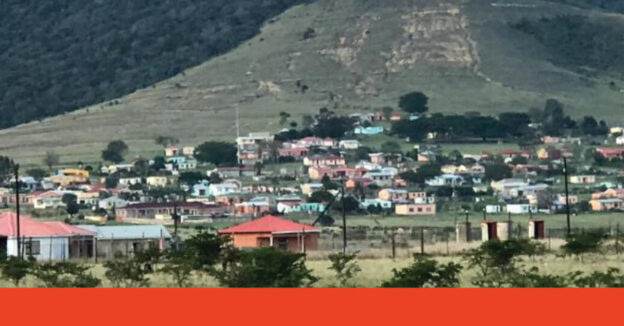COMMERCIAL ROOFING EXPERT, GLENN KENDALL’S WHY FACTOR

What It Is Really All About
I love my job. I love providing superior care for customers and building relationships that last years after the immediate project has ended. I love designing and building quality roofs and the challenges they present. I love the integrity and values of our team.
But at the end of the day, I do not continue to do what I do for any of those reasons. Roofs will eventually need to be replaced again. People come and go in our lives. What we do is transient.
I do what I do because of my job, and my customers, allow me to have an impact that will last long after my time here on earth. And because you are part of that difference, I wanted to share this personal story with you.
Beginnings
My parents were missionaries, and I grew up in Indonesia the first five years of my life, and Zambia, Africa the next ten before returning to the States, going to high school, university, and then following the normal path that life takes you.
In 2015, we had just completed and been paid out on a nine-month long project. On the way to church that Sunday morning, I told my wife we needed to find someplace to tithe on the check I had received. In class, a gentleman came in and shared of a place in South Africa called Fort White where a freak windstorm had blown the metal roof off the dining hall. Our church was trying to raise money to help them replace the roof. I looked over at my wife and we both nodded without saying a word: Africa… roofs… it all fit together.
Three years later, through another set of circumstances, I found myself leading a construction project to Fort White. The couple out there was starting a secondary school (Grades 8-12) for orphaned and vulnerable children in the surrounding villages. The local high school had closed a few years previously and there was a huge need in the area. My wife and I went to help transform one of the old buildings on the fourteen-acre campus into a dormitory for students. But within hours of setting foot on the campus, I knew I was not there for a construction project, but for an entirely different purpose. I had come home.
The Problem
When the local high school closed in 2014, students were required to attend school but had to travel 15-20 miles each way to attend the nearest, overcrowded school. The monthly taxi fare costs them about $30/month. These children live in rural areas where unemployment is over 70% and where the average welfare check is $50 monthly. Most of these children live with relatives: either they are orphans, have only one parent, or the parent works several hundred miles away from where meager paying jobs exist. Two of our students who are cousins live with their grandmother and seven other children in a 600 square foot house. Their situation is not the exception. The quality of the local schools is poor. School is from 8:00 – 1:00, with 40-50 students in a small classroom. Teachers are often simply babysitters. Students graduate from school, or more commonly drop out, with little education and no job prospects. They end up getting married, having children, and repeating the cycle of poverty that sends them to distant towns for meager jobs, leaving the next generation of children back in the village to be raised by relatives. The cycle perpetuates itself.
Intlantsi Christian School
Quintin and Teresita Ndibongo moved to Fort White in 2013. They are both U.S. citizens – Teresita is from Mexico, Quintin’s father is Xhosa, his mother is Swedish – they had met at M.I.T, married, and raised a family in Colorado and New Mexico for twenty years before feeling called to return to Quintin’s native South Africa. Teresita is a math teacher by profession; Quintin an engineer who works in the Premier’s office spearheading a fiber optic installation project.
The school was started in January 2019 with an inaugural class of 13 8th graders. Each year, they add 20 new students in 8th grade. This is the third year of operations, and in two more years, our first class of students will be graduating from Grade 12. We only accept new students in Grade 8 as we look to walk a five-year journey with them.
We are a residence-based school. Students arrive Sunday afternoon and return to their villages Friday afternoon. In between, they attend class, play sports, and do chores around the campus. Our goal is not just to provide them an education, but to teach them life skills and what it means to pursue excellence in everything they do. Intlantsi is the
Xhosa word for “spark” and our goal is to spark a fire in our students that will transform their lives and break the cycle of poverty into which they were born.
Opportunities and Challenges
I said earlier that I knew within hours of arriving in Fort White that I had come for a purpose other than a construction project. My background is in accounting, construction, and small business. All these skillsets are needed as we grow the school, and in 2019, I was invited to join the Board of Trustees.
Recently, I returned from my fifth trip in the past thirty months, each time for about a month. After the second construction trip I led, we realized that the work and cost involved in restoring old buildings, many of which had sat abandoned for twenty-five plus years, was better spent in new construction.
In 2020, I worked with a group called Engineering Ministries International to develop a 150-page master plan that would grow the campus to meet the needs of a school for 200 students. Our master plan includes 10 student residences that will house 25 students and a dorm couple, 14 classrooms, 20 staff cottages, an administration building, a library/science building, and an auditorium, along with all the necessary infrastructure for such a campus. We are in the process of rolling out a building campaign to fund this construction over the next 5-8 years.
We also realized that the cost of running a school for over 200 students would exceed $500,000 annually at capacity. Currently, we exist on donations that amount to 10% of that total. One of our values, and one of the values we teach our students, is the importance of providing for your own needs, rather than looking to others to constantly provide for you. To this end, Quintin and I have been looking for a business that will provide for the financial needs of the school. On my trip this April, we began the process of establishing an aquaponics farm on 2.5 acres at the back of our campus.
In addition to providing an income stream for the school, we are excited about all the other benefits of this business: students can learn skills there; we will hire people from the local village to work in the farm; we will empower individuals to become entrepreneurs as they distribute our products, and we can help others replicate our model.
The Bottom Line
Thanks for allowing me to share this personal story. Thanks for being a customer or supporter and allowing me to pursue this passion. And thank you to my two amazing partners, Mike Brink and Warren Hoekstra, who keep the fires burning at home when I am gone.
I love everything about my job. But thanks to you, I love that what I do for you allows me, in my own small way, to have an impact on people that will last long after I have left this earth.
Sincerely,
Glenn Kendall


